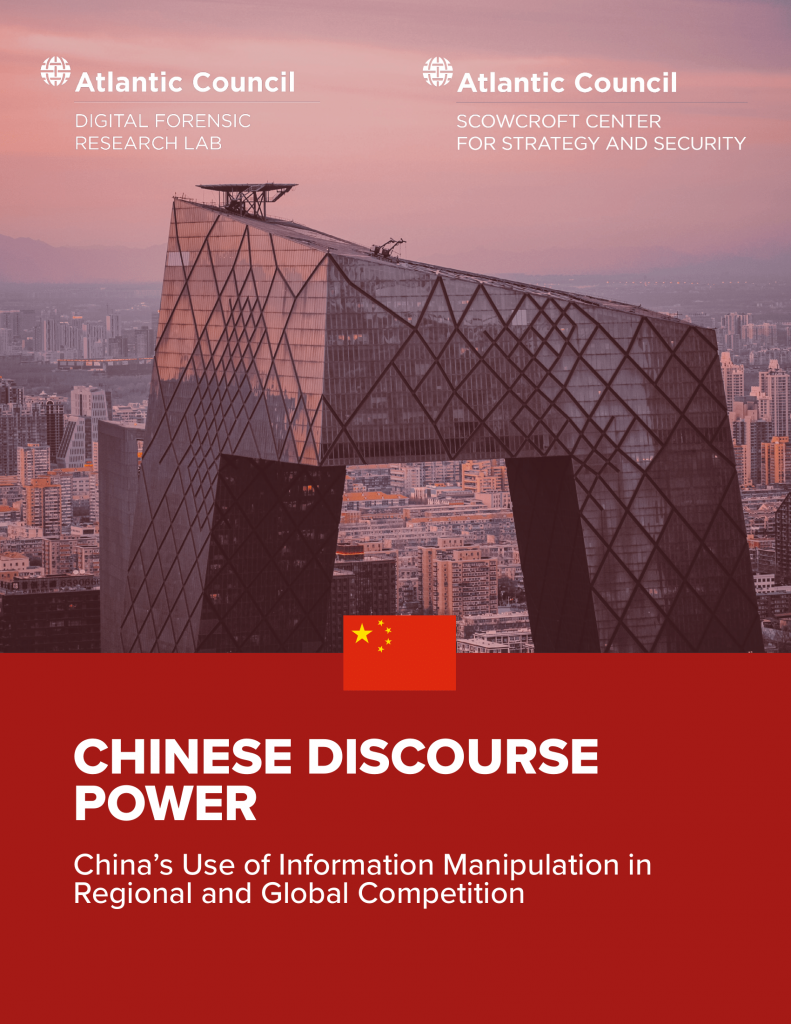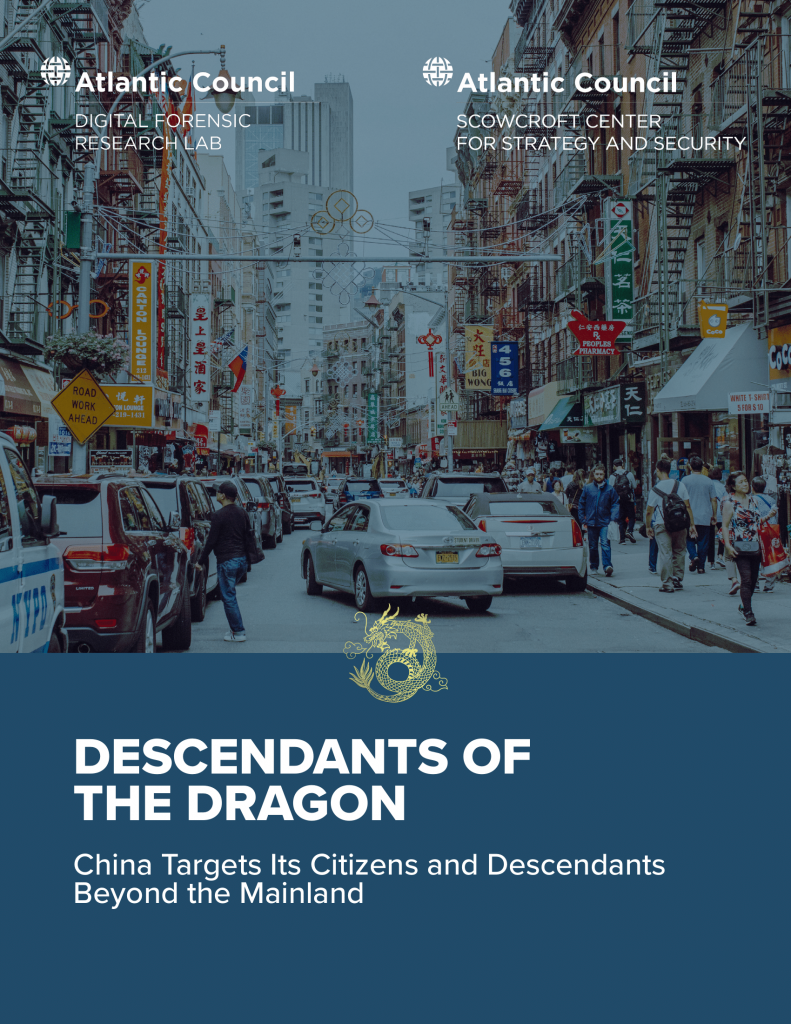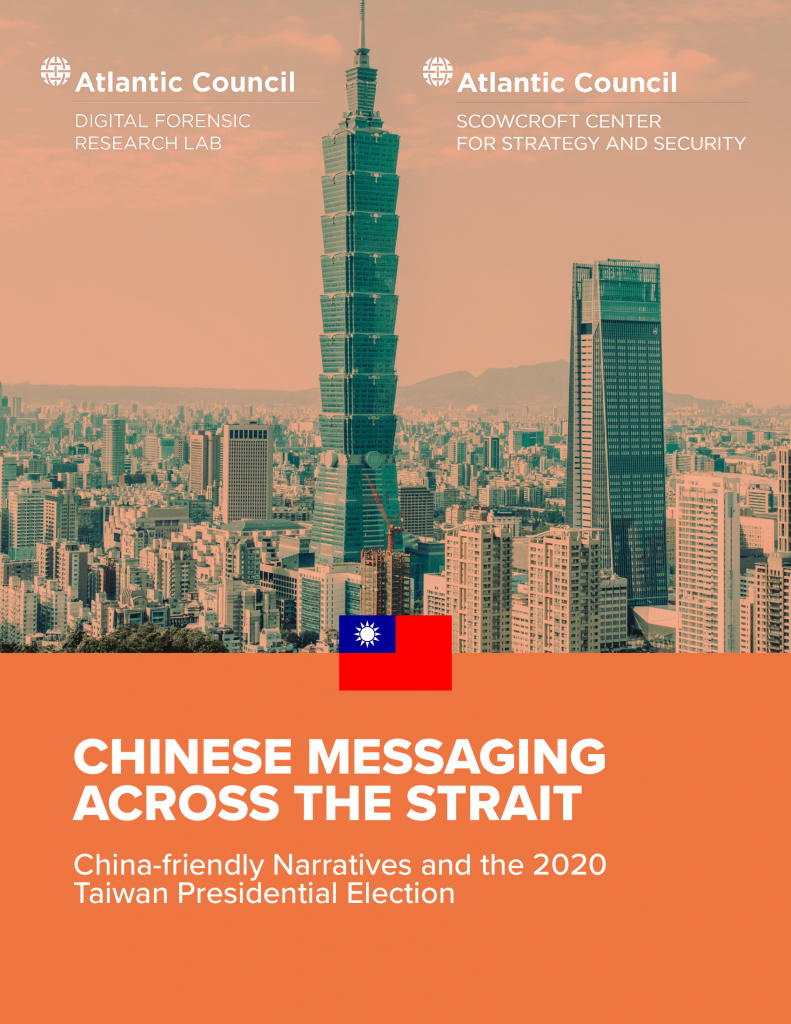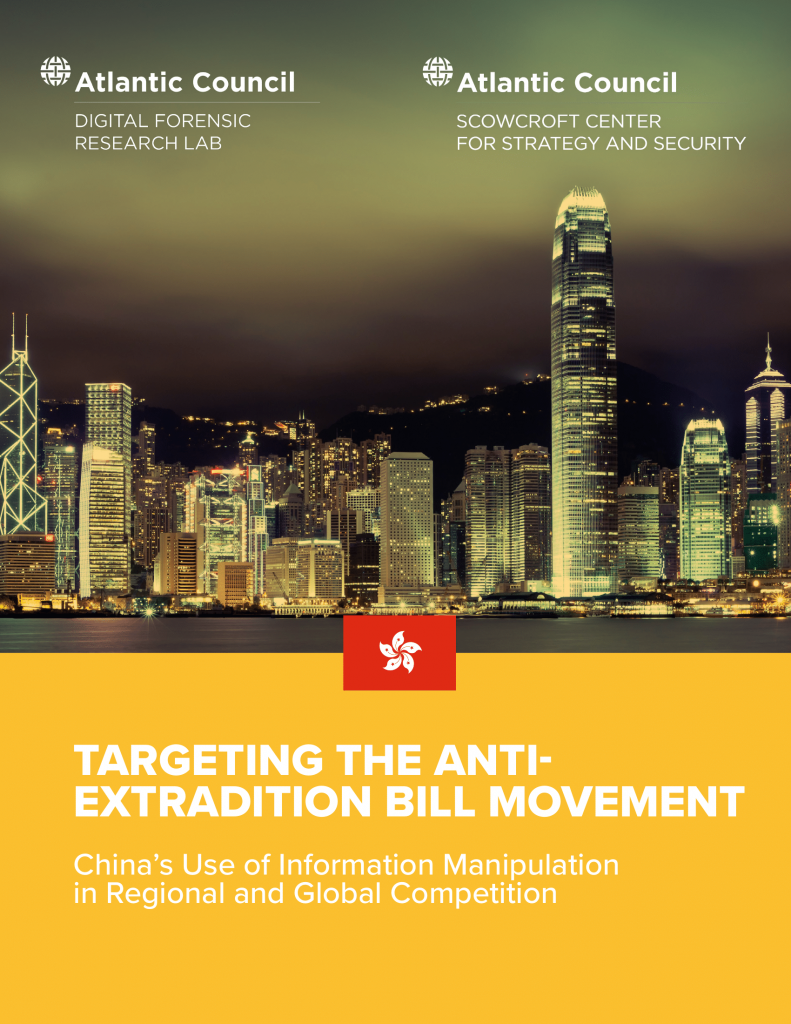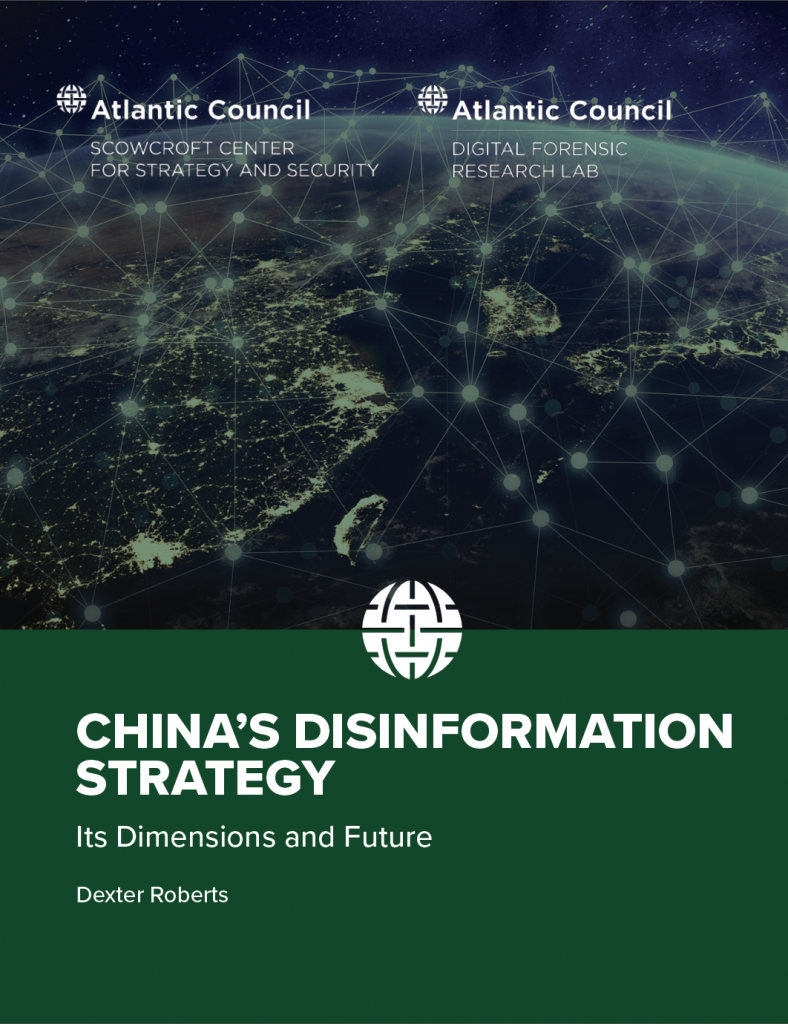Countering Chinese disinformation reports
A joint series of reports published by the Atlantic Council’s Digital Forensic Research Lab and Scowcroft Center for Strategy and Security‘s Asia Security Initiative
Chinese discourse power
China’s use of information manipulation in regional and global competition
A powerful nation at the center of the world, China has not historically been known to venture outside its regional backyard. The tide is changing, however, as state-sponsored companies open ride-sharing businesses in Latin America, build infrastructure in Africa, and lay down global infrastructure for an international internet. While the government directly follows the Chinese Communist Party’s (CCP) political philosophy in dealing with both domestic and international affairs, the state is more accurately described as a “party-state,” where politics is essentially the extension of the party’s ideologies.
Descendants of the dragon
China targets its citizens and descendants beyond the mainland
As an element of discourse power, the Chinese Communist Party (CCP) works to directly message and influence Chinese diaspora communities abroad with the strategic goal of retaining the Chinese national identity and building a positive amplification network. The strategy is not always successful, among other reasons, due to the drastically more open international information environment compared to the controlled information environment within China. This brief explores how CCP discourse power is directed at the Chinese diaspora community with recent examples.
Chinese messaging across the strait
China-friendly narratives and the 2020 Taiwan presidential election
Taiwan remains a flashpoint for Chinese projections of power and sovereignty that date back to the Chinese civil war in the late 1940s when the Kuomintang Party (KMT) was driven out of the mainland by the Chinese Communist Party (CCP). Since that time, the CCP has contended that Taiwan is a part of broader China yet to be united with the mainland, while the government of Taiwan has been caught up in a debate as to whether it represents the legitimate “China” (i.e., democratic and free) or whether it is “Taiwan” (i.e., no longer connected to China at all).
Targeting the anti-extradition bill movement
China’s Hong Kong messaging proliferates on social media
In 2019, the government of the Hong Kong Special Administrative Region introduced a bill that could ostensibly legalize the extradition of Hong Kong residents to mainland China for trial. The draft legislation provoked fears that Hong Kong might lose its autonomy, sparking widespread protests. Propagandists adjacent to the Chinese Communist Party (CCP) took advantage of this unrest, using viral disinformation and social media curation to isolate and denigrate the broader Hong Kong pro-democracy movement. In time, Chinese authorities would use this aggressive application of discourse power to move closer toward their ultimate goal: the subordination of Hong Kong.
China’s disinformation strategy
Its dimensions and future
In recent years, China has increasingly turned to state propaganda and the manipulation of social media to push its worldview onto the Chinese-speaking people of Hong Kong and Taiwan, and further abroad, amongst the Chinese diaspora community in North America. The effort to push a Chinese vision of the world, one firmly controlled by the Chinese Communist Party (CCP) in Beijing, has happened in tandem with the People’s Republic of China’s increasing global strength in economics, trade, diplomacy, and military.

The Atlantic Council’s Digital Forensic Research Lab (DFRLab) has operationalized the study of disinformation by exposing falsehoods and fake news, documenting human rights abuses, and building digital resilience worldwide.

The Scowcroft Center for Strategy and Security works to develop sustainable, nonpartisan strategies to address the most important security challenges facing the United States and the world.
